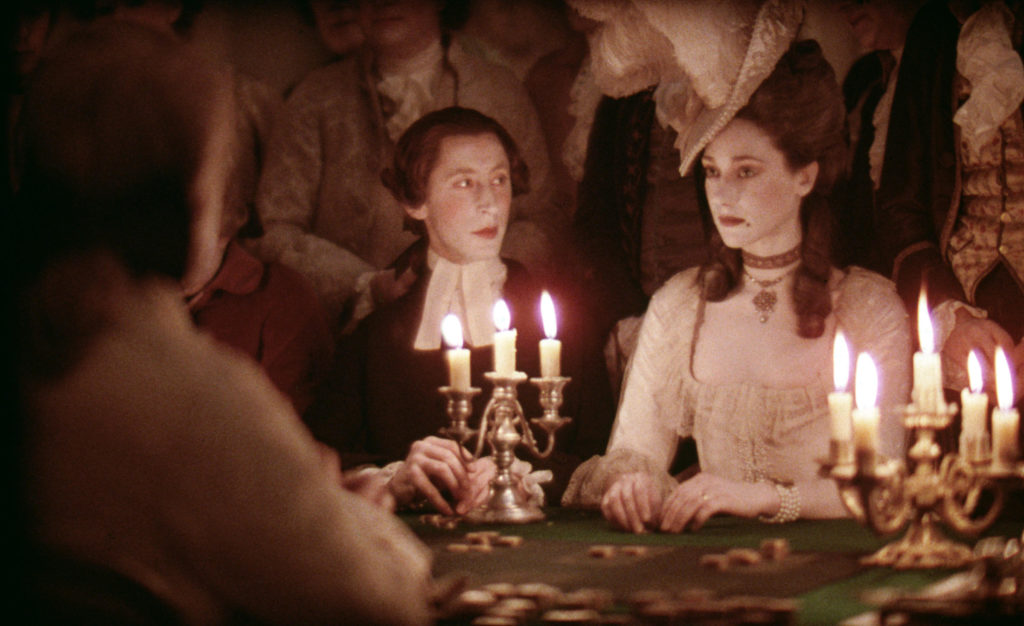
In John Russel Taylor’s book Directors & Directions: Cinema For The Seventies he profiles an eclectic number of filmmakers and their contributions to the medium. One of the director’s Taylor features in his book is of course Stanley Kubrick. It is at the end of the Kubrick profile that Taylor speaks with anticipation for what was then to be Kubrick’s next film Barry Lyndon (1975).
Barry Lyndon follows the life of Redmond Barry (played by Ryan O’Neal) from adolescence to middle age on a journey of miraculous chance and disastrous circumstance. Kubrick wrote the adaptation himself from William Makepeace Thackeray’s novel The Luck Of Barry Lyndon published in 1844. Both the novel and the film are set in the second half on the 18thcentury, spanning most of Northern Europe. Both are primarily concerned with Redmond Barry’s social climbing from the Irish middle class to the English aristocracy, criticizing the posturing and oppressive etiquette of the time.
Time is, in Kubrick’s film, the connecting theme. Kubrick endeavors, successfully, to create a film that in every available context presents the 18thcentury as a palatable experience for his audience. A majority of the shots in the film adhere to the aesthetics of the Rococo. Likewise, the narration is steeped in the conventions of 19thcentury literature just as the film’s famous soundtrack draws on the music of the era. In addition to these formalist decisions in aesthetic execution, Kubrick’s obsession for detail has imbued his film with an unprecedented authenticity in both sets and costume design. All these components, implemented at the start of the film, give the audience a strong sensory experience that prevents them from withdrawing from the film. Rather, it allows the audience to be swept up into both the era of the film and the narrative of Redmond Barry contained within.
That is why, of all Kubrick’s films, I find Barry Lyndon to be his most successful and enduring. Though Barry Lyndon was not the controversial success of A Clockwork Orange or the technical triumph of 2001: A Space Odyssey, it avoids, quite amiably, the self-awareness that has come to define both of those films. Barry Lyndon is subtle, slow moving, and eloquent; unraveling its narrative slowly using long takes and wide shots to maintain the mood. Kubrick finally forgoes the showmanship of his earlier films in favor of letting Barry Lyndon stand on its own as a cinematic accomplishment.
